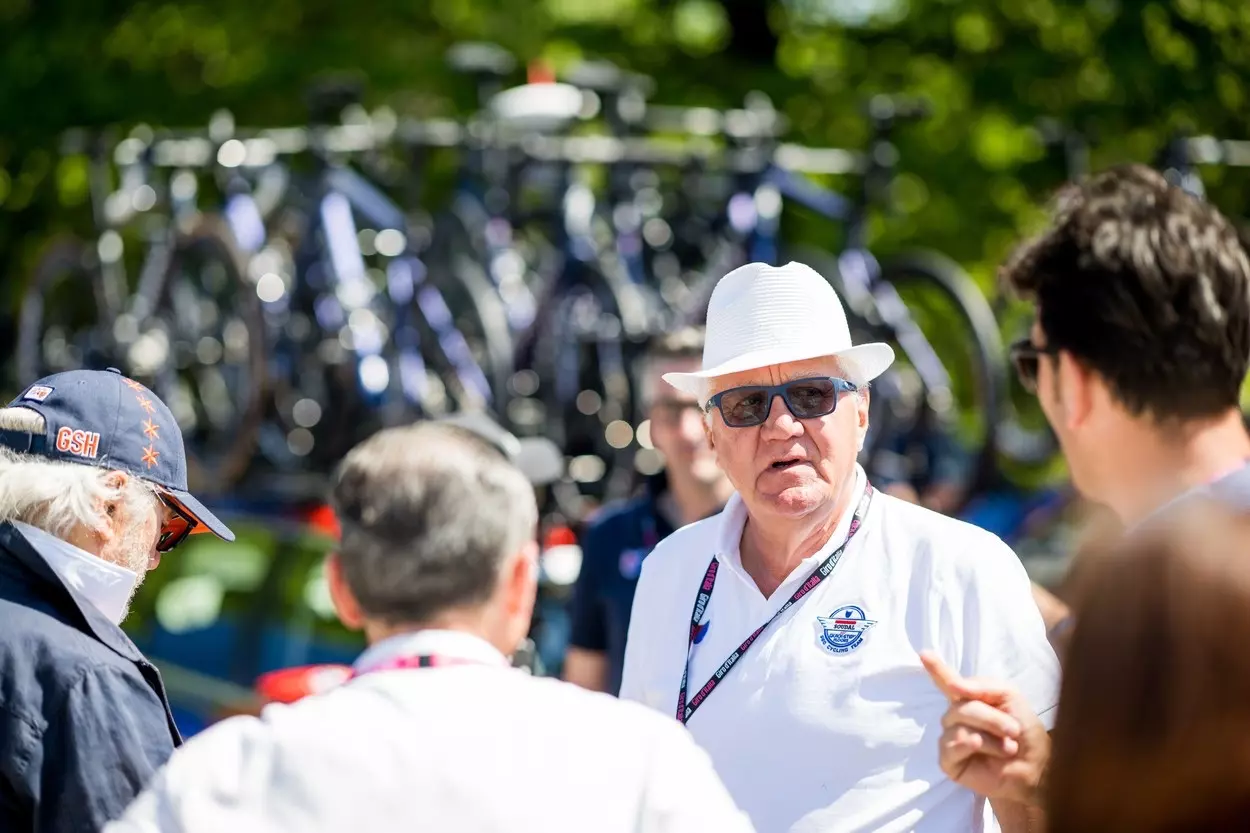“Fortunately he has become world champion twice,” the 68-year-old Belgian said. “In addition, he won the opening stage of the Tour in 2021 and wore the yellow [jersey]. I understand that French teams are satisfied with that, but I am not. Just like everyone else, I love Julian. How can you not love him? But I also have to be realistic: he takes a big bite out of my budget. I want to see results.”
Lefevere was speaking as his team was suffering through a dismal spring Classics season. Until Remco Evenepoel won Liège-Bastogne-Liège, they had been totally shut out in this year’s spring Classics. The Tour of Flanders had been Alaphilippe’s target, but he crashed heavily in the race. And when no Soudal–Quick-Step rider could finish better than a dismal 16th in the E3 Saxo Bank Classic, Lefevere again did not mince his words.
“During the E3 Classic I had a tasty lunch in restaurant Castor in Waregem, two Michelin stars,” he wrote in his column in Het Nieuwsblad. “With that we have had everything that was good yesterday: the food. The performance of the team was below par. Furthermore, I did not dare to look.”

But Lefevere is certainly in a better mood now because in the 23-year-old Evenepoel he has one of the best riders in the world, and one who – if he improves his climbing ability – will eventually challenge Tadej Pogačar in the Tour de France. But Soudal–Quick-Step is hardly a one-man team. In the Dane Kasper Asgreen they have a very good climber, a good ITT rider and a past spring Classics winner, as he won the Tour of Flanders and the E3 Saxo Bank Classic in 2021. The 26-year-old Fabio Jakobsen is among the best sprinters on the road, having won five Vuelta stages and the Vuelta Green Jersey in 2021. And the promising 22-year-old Ethan Vernon has already won a stage in the Volta Ciclista a Catalunya and in the Tour de Romandie. And, of course, there is Alaphilippe, who on his day and when healthy is one of the fiercest competitor in the peloton.
But Lefevere knows that Evenepoel is the team’s present and future star, and he is being very canny in how he manages the young cycling prodigy’s career. It is no accident that Evenepoel has not yet faced Pogačar in the Tour. Lefevere knows that, at this stage of his development, he cannot match the Slovenian in the mountains. So Evenepoel entered the Vuelta last year, and won, and he is the favourite to win this year’s Giro. The eagerly anticipated duel between Evenepoel and Pogačar in the Liège-Bastogne-Liège came to nothing when the UAE Team Emirates leader crashed and broke his wrist early in the race. Evenepoel’s dominating victory in that race did nothing to hurt his reputation. Quite the contrary. Eventually, Evenepoel will face Pogačar in the Tour or another Grand Tour, and when he does, it will be because Lefevere believes he can win.
However, it’s risky to put so many of your eggs in one basket, and Lefevere knows it. Evenepoel has been fortunate so far in that he has avoided severe injuries and illness and has therefore missed little training or racing time. That’s why the second-most important riders in Lefevere’s stable are probably those tasked with protecting their leader from race mishaps. That was apparent near the end of the Giro’s second stage when, with 3.4km to go in the stage, Soudal–Quick-Step’s David Ballerini and the Alpecin-Deceuninck sprinter Kaden Groves bumped shoulders as the latter was trying to get into position for the sprint. That led to a crash that took down Mark Cavendish and caused several GC competitors to lose valuable seconds in the resulting bottleneck.
If he was watching that incident, Lefevere must have been holding his breath – for once.




